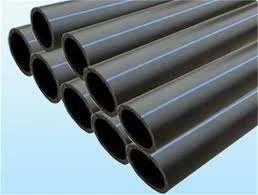Nov . 22, 2024 03:41 Back to list
hdpe pipe sprinkler
The Advantages of HDPE Pipe Sprinkler Systems
Irrigation plays a pivotal role in agriculture, ensuring that crops receive adequate water to promote healthy growth. Among various irrigation systems, HDPE (High-Density Polyethylene) pipe sprinkler systems are gaining popularity due to their remarkable advantages. This article explores the benefits, applications, and installation processes of HDPE pipe sprinkler systems, highlighting their importance in modern farming.
Understanding HDPE Pipes
HDPE is a thermoplastic polymer made from petroleum. When it comes to irrigation, HDPE pipes are favored for their strength, durability, and resistance to a wide range of environmental conditions. The manufacturing process involves creating a linear molecular structure, which contributes to the pipe's high tensile strength and flexibility. The application of HDPE in sprinkler systems offers many advantages over traditional materials such as PVC and aluminum.
Advantages of HDPE Pipe Sprinkler Systems
1. Durability One of the primary advantages of HDPE pipes is their exceptional durability. These pipes can withstand extreme temperatures and are resistant to corrosion, abrasion, and impacts. As a result, HDPE pipe sprinkler systems tend to have a longer lifespan, reducing the need for frequent replacements and maintenance.
2. Flexibility HDPE pipes are significantly more flexible than rigid PVC or metal pipes. This flexibility allows for easier installation, especially in uneven terrain or areas with complex layouts. The ability to bend without breaking also means that HDPE pipes can adapt to movement and settling of the soil.
3. Lightweight Compared to other materials, HDPE pipes are lightweight, making transportation and installation a breeze. Farmers can save on labor costs and time, as fewer workers are needed to handle and set up the irrigation system.
4. Chemical Resistance Agriculture often involves exposure to various chemicals, such as pesticides and fertilizers. HDPE pipes do not readily react to these chemicals, ensuring that the integrity of the irrigation system is maintained over time.
5. Cost-Effectiveness Initially, the investment in HDPE pipe systems may seem higher than traditional methods; however, their durability and reduced maintenance costs lead to long-term savings. Farmers benefit from decreased downtime and lower replacement costs, making HDPE systems a wise financial decision.
6. Environmental Impact In a world increasingly focused on sustainability, HDPE pipes offer a more environmentally friendly option. Made from recyclable materials, they contribute to reducing plastic waste. Additionally, their efficient water distribution minimizes water wastage, an essential feature in conserving this precious resource.
hdpe pipe sprinkler

Applications of HDPE Pipe Sprinkler Systems
HDPE pipe sprinkler systems are versatile and can be applied in various settings. They are ideal for agricultural fields, residential gardens, parks, and sports fields. The even distribution of water provided by sprinkler systems helps ensure that plants receive the right amount of hydration, promoting healthy growth and enhancing crop yields.
Installation Process
Installing an HDPE pipe sprinkler system involves several key steps
1. Planning and Design Assessing the layout of fields, considering factors like crop types, soil moisture, and water source. Create a detailed plan to determine the need for mainlines, lateral lines, and sprinklers.
2. Trenching Digging trenches for the pipes, ensuring they are at an appropriate depth to avoid damage from soil movement or surface activities.
3. Pipe Connection Joining the HDPE pipes using appropriate fittings and techniques, often utilizing heat fusion to ensure a secure connection.
4. Installation of Sprinkler Heads Placing sprinkler heads at calculated intervals based on the type of crops and water requirements.
5. Testing the System Once installed, testing the system for leaks and ensuring even water distribution before putting it into full operation.
Conclusion
HDPE pipe sprinkler systems represent an innovative and efficient solution for modern irrigation needs. Their durability, flexibility, and cost-effectiveness make them an excellent choice for farmers and gardeners alike. As agriculture continues to evolve, adopting advanced technologies like HDPE piping systems can lead to sustainable farming practices and increased productivity. Investing in such systems today ensures a more water-efficient and environmentally friendly tomorrow.
-
Premium PVC Soft Sheets: Clear, Flexible & Durable
NewsAug.12,2025
-
Premium PVC Round Rods: Durable, Chemical Resistant, Easy to Machine
NewsAug.11,2025
-
PP U-channel: Chemical-Resistant, Lightweight & Durable
NewsAug.10,2025
-
Transparent PVC Pipe: Clear Flexible Tubing for Fluids
NewsAug.09,2025
-
Durable PP Rigid Sheet: Versatile & High-Quality Plastic Panels
NewsAug.08,2025
-
Premium Glossy PP Rigid Sheet – Durable & Versatile
NewsAug.07,2025

